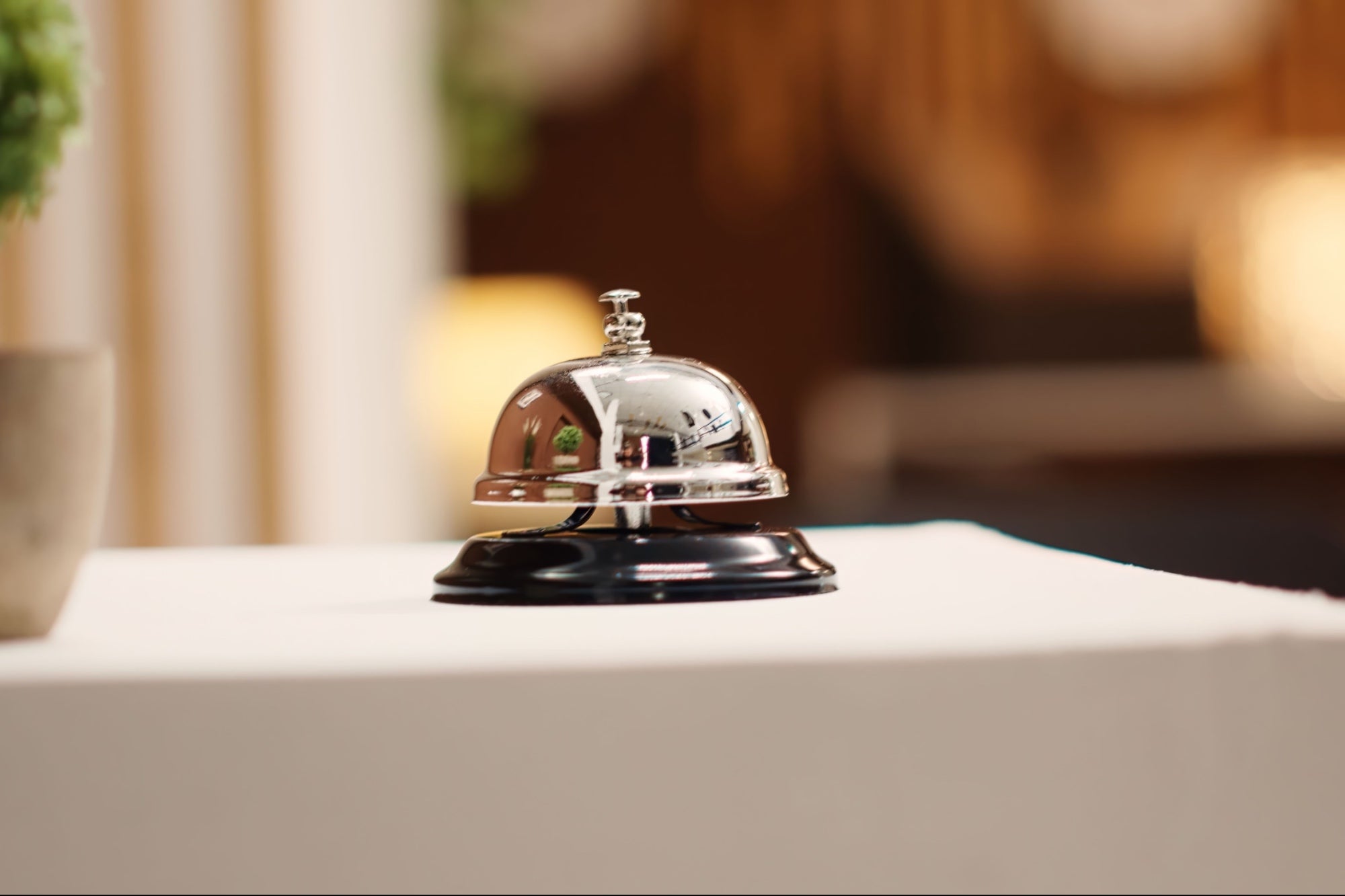From Spaces to Destinations: Lessons in Hospitality Having spent decades in the hospitality industry, I've seen firsthand what it takes to transform a venue into a sought-after destination.
By Tony Truman
Opinions expressed by Entrepreneur contributors are their own.
You're reading Entrepreneur Middle East, an international franchise of Entrepreneur Media.

In the world of hospitality, creating a space is easy. Creating a destination? That's where the magic—and the challenge—lies. The distinction lies not in the size or scale of the business but in the impact it has on those who visit. A true destination doesn't just offer services; it crafts memories, encourages connection and leaves a lasting impression.
Having spent decades in the hospitality industry, I've seen firsthand what it takes to transform a venue into a sought-after destination. It's a journey of passion, patience and plenty of lessons along the way. Here's what I've learned from the highs and lows of building experiences that people travel far and wide for.
The right location sets the tone
The importance of location cannot be overstated. But it's not just about being in a busy area or a tourist hotspot; it's about choosing a setting that aligns with your brand's identity and vision.
Equally important is understanding the nature of your audience. If your concept thrives on vibrant, social experiences, it needs to be in a lively area. On the other hand, if it's more intimate or exclusive, the location should reflect that too. For me, finding the right location has always been about striking the perfect balance between accessibility and relevance to the target audience.
Pro tip: Your location sets the stage, but your execution steals the show. Whether you're in a city centre or a tucked-away spot, make it worth the journey for your guests.
Your people are your power
In hospitality, the people you hire and the culture you create are as crucial as the product you offer. A venue can look stunning, but without the right team delivering a consistent and memorable experience, it's just a pretty shell.
You can have the best menu, the fanciest interiors, or even a breathtaking view—but if your staff aren't part of the experience, none of it matters. For me, the secret (in all our 22 businesses) lies in building a family-like culture within the team, where every member feels valued and empowered. This connection between staff and guests is what sets a destination apart.
Guests might forget what they ate or drank, but they'll never forget how your staff made them feel. That's the true measure of success in hospitality.
Trends fade, core values are forever
It's easy to get swept up in the latest trends. From pop-up experiences to social media activations, the hospitality industry is rife with ideas designed to grab attention. But trends are fleeting—they provide short-term wins, not long-term loyalty.
For us, the only trend we closely follow is musical trends, given our venues' strong musical focus. Music is a universal language, and for me, there's music for every occasion. However, even with that, we don't deviate from our core music policy.
To entrepreneurs: don't chase trends just for the sake of staying relevant. Instead, focus on what makes your concept unique, and use innovation to amplify that uniqueness. Of course, innovation is important, but it must align with the essence of what your brand stands for. Think of trends as tools to enhance the guest experience, not as the foundation of your business.
Related: Double-Edged Sword: Why Burnout Is Both A Curse And A Catalyst In The Creative Industry.
Patience builds destinations
There's a misconception that success in hospitality is instant: open the doors, and the profits roll in! In reality, building a destination takes years of hard work, refinement and reinvestment.
When I reflect on my journey, the most successful ventures, including O Beach Ibiza weren't those that expanded quickly but those that took the time to perfect their offering. Every detail, from operations to marketing to guest experience, had to align before we even thought about expanding to Dubai. By the time we launched O Beach Dubai, we had 12 years of lessons under our belt.
Too many entrepreneurs rush to expand before perfecting their first venture. I've seen it happen time and time again—people trying to run before they've learned to walk.
My advice? Don't rush. Hospitality is a marathon, not a sprint. Plan for at least five years of challenges and growth before expecting significant returns. Use this time to build strong foundations and the success will follow.
The truth is, creating something extraordinary takes time, patience and resources. If you're in it for a quick win, hospitality might not be your game.
Related: The Myth of Overnight Success: The Untold Struggles Behind Winning at Cannes and Dubai Lynx
Mistakes are your best teachers
Every entrepreneur in hospitality will make mistakes—it's part of the process. Some of the biggest lessons I've learnt came from trusting the wrong people, underestimating market challenges or assuming what worked in one location would automatically succeed elsewhere.
One key takeaway: Never assume your team or your audience understands your vision. Communication and clarity are essential, especially in new markets. Every concept needs to be adaptable to its environment while still holding onto its identity.
Mistakes will happen, but they're invaluable for growth. Learn from them, adapt and keep pushing forward. As the saying goes, "You're only as good as your team." Treat them as if they own the business, so they have its best interests at heart.
Passion: The heart of hospitality
I started this journey not because I wanted to make millions, but because I wanted a life I loved. From the moment I stepped into my first Ibiza club as a teenager, I knew I wanted to create spaces that brought people joy. That passion is what gets me out of bed in the morning and keeps me going through the tough times.
If you're an entrepreneur in hospitality, do it because you love it. The money will follow, but only if your heart is in it. When people focus solely on financial benefits, they often neglect their own quality of life and that of their staff.
In the end, hospitality isn't about gimmicks; it's about creating spaces where people connect, celebrate and make memories. That's the heart of a true destination—and what keeps both your team and your guests coming back.
Related: Entrepreneurship Over 40: The Mid-Career Transition from Dreamer to Doer











